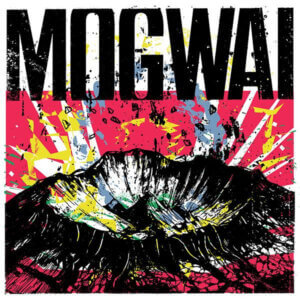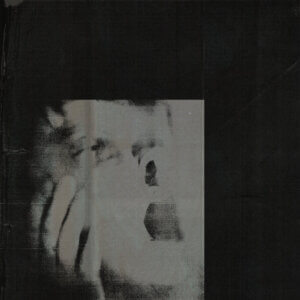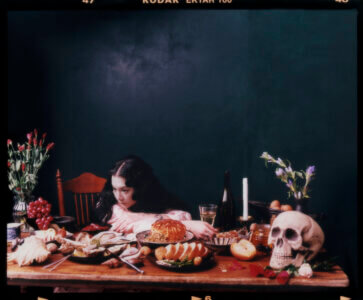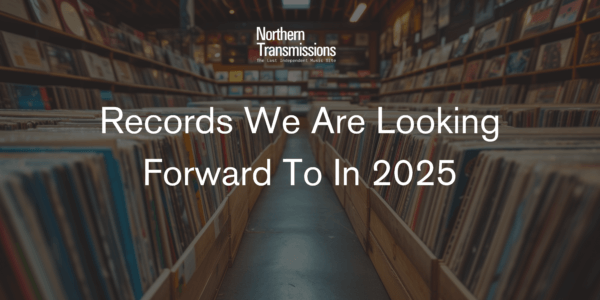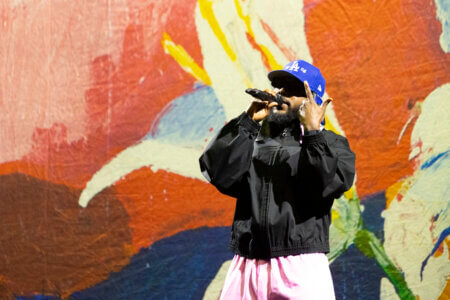Japanese Breakfast On Curating Yourself

Life never goes exactly how you’d expect it to. For Michelle Zauner, her mother’s fight with cancer meant taking time away from her bandmates in rock outfit Little Big League. The ensuing loss and support she gave to her family kept her stuck in her family’s secluded home with no other release than in the cathartic writing that would eventually become Japanese Breakfast’s album Psychopomp. Even trying to shoot down touring for her own sanity it eventually became clear that she was back in the music world whether she expected to or not. Zauner talked to us about communicating through music, how she parsed out six years of writing and what’s on the horizon.
Northern Transmissions: What caused the huge genre switch and overall step away from Little Big League? Did you always want to make these sounds but never had the time or avenue?
Michelle Zauner: I think that maybe it was more of the genre that I was interested in personally. I mean it was my solo project away from three collaborators that influenced the sound of Little Big League. I grew up in the Pacific North-West listening to more indie-rock and shoegaze than the other members of the band who all came from these East coast punk and hardcore backgrounds. So that sound was us collaborating whereas this is more what I want to sound like. I think that this is way more my kind of sound, and I get to be a lot more involved in the production of the record. Choosing who I want to collaborate with and work with where as in the band it was the same people all in their roles. I also don’t have to negotiate with anyone now.
NT: I understand the time away from the band was to look after your mom, so what drove you back to writing?
MZ: I definitely wasn’t writing music when my mom was sick. When she died I just needed some sort of project or routine. I was stuck in the woods in Eugene, Oregon which is not the most happening town, especially living 20 minutes out of the city. I carved out a space to write every few hours when I wasn’t packing up old belongings, trying to find an emotional support system.
NT: Was the writing a way to channel and move through the intense emotions you felt at the time so they didn’t consume you?
MZ: I spent so much time swallowing my needs and feelings to support other people, that I was trying to process that experience in a very private way. I think I had a difficult time communicating these complicated feelings to my family, so the art making process was my way of communicating and understanding what I was going through. When I made that record I didn’t think that anyone was going to hear it, I had no expectations for it whatsoever. I’d been in a D.I.Y. touring band for four years and released a few albums that never got us to a point to build a full career. I was at the point where I was 25 and I thought “I need to put this away” it was time to give it up and get a real job. When I made that record it was just a personal project that I just didn’t think about sharing with anyone. I didn’t understand what I was feeling so it was figuring that out.
NT: What caused you to turn around on your position against touring, was it offers, people or a mix?
MZ: A full year passed after I finished the record and my mom had passed away. Initially I just didn’t want to tour because it’s really hard to be away from your support system and I felt very emotionally fragile and not wanting to spend long hours on the road, in uncomfortable places, away from my partner. I told my label I didn’t want to tour because it seemed like a nightmare to me at the time when I gave them the record. When it came out, a year had gone by and I felt I had some more resilience and strength in me, I’d been able to sort out what had happened. We also just started getting really great offers. It started with SXSW and it seemed like a fun thing to do, I’d never been so we’d go down to Austin and hang out. One small acoustic show turned into seven showcases, we threw together a live band and it turned into a whirlwind from there. We went on tour with Mitski and I’d never done a full tour supporting anyone, so that offer made it more real for me. We had more opportunities that weren’t just small D.I.Y. shows so it became more financially feasible to do.
NT: You started writing some of this material years ago, so how did you bring it all back when putting the album together, and how was the process of revamping?
MZ: It was a different process for each song. It’s a really fun thing to think you’re at a finished point and then to open up again with someone. There were songs over the years that didn’t get the attention they deserved, and I really wanted to try and put them on a full record with better production and be consumed in that way. Even though a lot of people argue that format is really outdated I love it and working with that structure a lot. “The Woman That Loves You” I recorded with a live band and then six months later I brought in Ned Eisenberg to co-produce the album and add extra stuff. We had originally co-produced that song three years before and when we listened to the full band recording, something was missing and it just wasn’t the same so we scrapped the live recording. We opted to just use the live demo.
A song like “Everybody Wants To Love You” was written six years ago in a trailer in Oregen. I rewrote it with a solo, new instrumentation because it used to be on a shitty mandolin, and then recorded it with a live band, sat on it for six months, opened it up again with Ned and he said double the bpm, and make it fast. It took that many passing of hands and years to carve it out in the right way. So the songs that I chose were ones that were stuck in my head or I appreciated that I thought deserved another more serious consideration.
NT: What’s coming up for you after touring and what does the year look like? I know you’ve been playing music if so what’s new and will you still be pulling from older material or completely new?
MZ: We have a new album coming out, and I felt the last album worked out well, it felt like the first album I made that people were interested in. So I tried to use the same process, I pulled from old demos, and worked with a new co-producer Craig Hendrix, so it’s a different sound because it’s our collaboration and the two of us played everything on the record. I followed the same kind process, but there are songs that I wrote completely from scratch for this project, and there are also songs that I revisited and always wanted to pick back up again.
NT: Do you see yourself making music with Little Big League in the near future or are you looking to explore this more first?
MZ: It’s hard, I have so little time and so much creative energy and desire to do so many different things. I don’t not have a desire to make another Little Big League record, I was actually just talking to my co-producer about that the other day. It’s fun with a new set of limitations, and my role in Little Big League is very different from my role in Japanese Breakfast, it’s a lot more collaborative with more people involved. I have a lot of stuff I want to do first and the other guys are really busy too so I don’t know if we would do that or not but it’s definitely not out of the question, but there’s definitely no plan.
Interview by Owen Maxwell
Latest Reviews
Tracks
Related
Advertisement
Looking for something new to listen to?
Sign up to our all-new newsletter for top-notch reviews, news, videos and playlists.

